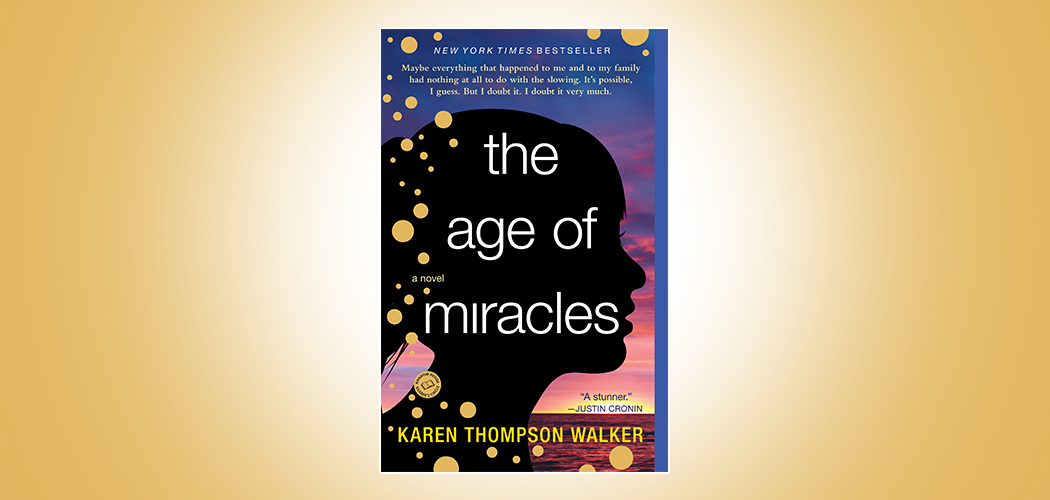[title subtitle=”review: Marla Cantrell”][/title]
The Age of Miracles
By Karen Thompson Walker | Random House | 272 pages |$15
On an otherwise normal morning, a middle school girl named Julia wakes beside her best friend Hanna, who’s spent the night at Julia’s house in southern California, just ninety-five miles from Hollywood. The two jump up, get ready for their soccer match and wait for Julia’s mom to show up with the bagels they’ve been promised for breakfast.
When Julia’s mother arrives, she’s frantic.”Turn on the TV,” she says. “Something God-awful is happening.”
What she means is that scientists have discovered that the rotation of the earth is off. Days and nights are growing longer by minutes. Gravity is affected. The media assigns the condition a name: The Slowing. For a time, nothing much happens, and then the consequences start mounting. Days last so long people must buy blackout curtains to sleep. The sun becomes a furnace when it’s out, killing crops, downing trees. Nights last so long that schoolchildren are forced to go to class in the black of night.
Grocery store shelves empty as shoppers grab everything they can that might help them survive in an increasingly unsteady world. Others become reckless, forgetting marriage vows or civility or the conventions of law and order.
As experts fight to find a way to right the planet, the country divides into those who continue to follow the twenty-four-hour day and those who rely on the sun’s rising and setting as a way to mark time. Those who live by the clock distrust the “real-timers” and paranoia intensifies.
In the midst of this dystopian world, Julia’s family is struggling to find their way. Her father, an OBGYN, finds himself attracted to one of their neighbors, threatening the marriage, and Julia’s mother comes down with a sickness related to the earth’s slowing.
And all the while, Julia is dealing with the effects of adolescence, at a time when none of the adults in her life are paying much attention. She falls in love with a boy whose mother has recently died, and spends days with him, skipping school and going to the beach to save whales that keep coming ashore since the ocean is in chaos in the wake of the universe’s changes.
What’s extraordinary about this novel is that the two storylines—the world ending and Julia coming of age—feel equally important. Julia’s best friend Hanna is a Mormon. She and her devout family leave for Utah to be with other believers. When she finally returns, she is so changed she has little to say to Julia. Other kids ditch school, wondering what the point is if they’re preparing for an adulthood that might not come. Still others disappear, heading for camps set up on the outskirts of civilization, trying to find a way to survive the inevitable.
This book is one you’ll read late into the night, not caring that you have to wake early and start a new day. When you finally put it down, you’ll hope that the sun will rise tomorrow as it always has. And when it does, you’ll sigh in unbelievable relief.




